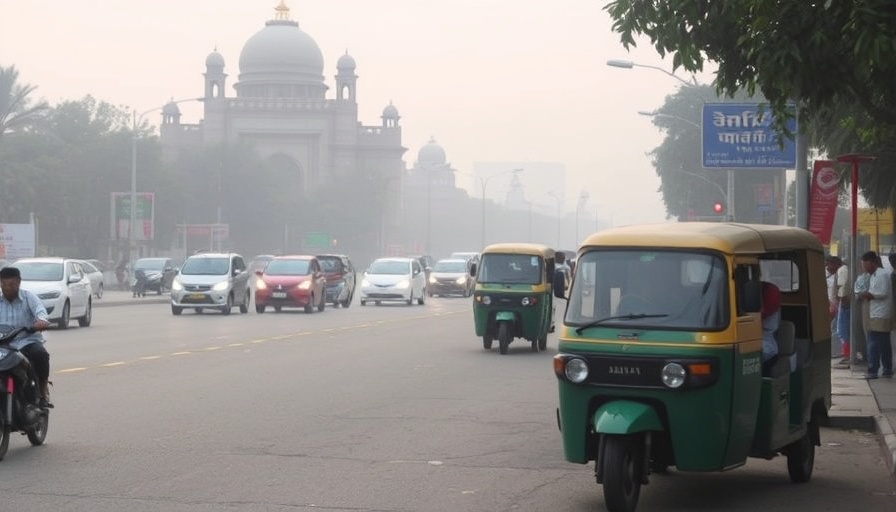
Delhi's Bold Move Towards a Sustainable Future
As pollution continues to plague Delhi, one of the most polluted cities in the world, a transformative proposal is underway. The Indian government is seriously contemplating a permanent ban on traditional internal combustion engine (ICE) vehicles in an effort to combat this dire issue. The ban targets all petrol and diesel vehicles, allowing for a shift to electric, hybrid, and CNG models, a significant step toward cleaner air and a greener metropolis.
Understanding the Implications of a Ban
This ban isn't merely about removing ICE vehicles; it seeks to address a systemic problem that has long affected the health of Delhi’s populace. According to The Economic Times, implementation discussions are at high levels of government, with the intention of creating a timeline that ensures smooth transitions. By April 2026, new registrations for conventional ICE vehicles could be a thing of the past. Initially, this includes public transport like buses, which experts believe can shift entirely to cleaner models. This decisive action could set a precedent for neighboring states, influencing pollution policies across India.
Riding the Electric Wave: A Vision for the Future
Delhi's ambitious plan to phase out ICE vehicles is part of a larger trend observed in several major cities around the globe, which are recognizing the importance of sustainable transport options. Already, Mumbai has floated similar bans on its traditional vehicles. Delhi's initiative may serve as a template for other urban centers grappling with pollution challenges. By embracing electric public transport, compatible with solar energy solutions, the city stands to gain both environmentally and technologically.
What Does This Mean for Residents and Businesses?
For homeowners and businesses interested in adopting solar and green energy solutions, this policy could bolster the demand for electric vehicles (EVs) and related infrastructure. As Delhi transitions, there’s an accompanying need for charging stations and solar-powered facilities which opens up investment opportunities in green technologies. The government is poised to invest in infrastructure to support these upcoming demands, aligning with the global shift toward renewable energy.
Addressing Challenges: Transit and Economic Impacts
While the aims are noble, there are challenges that need addressing, specifically concerning public transport's capacity to handle the shift. Current plans to retire older CNG buses and replace them with electric models showcase a commitment to reducing emissions but also raise the question of availability and reliability of these new systems. Achieving the goal of 100% electric buses by 2027 will require substantive investment and community cooperation to inspire confidence in these transitions.
Building a Coalition for Clean Air
The government envisions not just changes in vehicle types but a holistic improvement in urban planning, integrating smart energy solutions like solar technology for homes, which can complement the energy needs of an electric fleet. As more businesses adopt sustainable practices, homeowners will feel encouraged to engage in eco-friendly innovations aimed at achieving energy independence and reducing carbon footprints. This potential collaborative effort can highlight the interconnectedness of these initiatives, rallying stakeholders towards a common goal.
As India grapples with climate change and urban pollution, the ambitious ban on traditional ICE vehicles in Delhi represents a vital step towards cleaner air and sustainability. Individuals and businesses alike are encouraged to explore the investment opportunities this transition promises, particularly in renewable energy solutions like solar power. By leveraging these insights, stakeholders can collaboratively support a future where urban living coexists harmoniously with nature.
 Add Row
Add Row  Add
Add 




Write A Comment